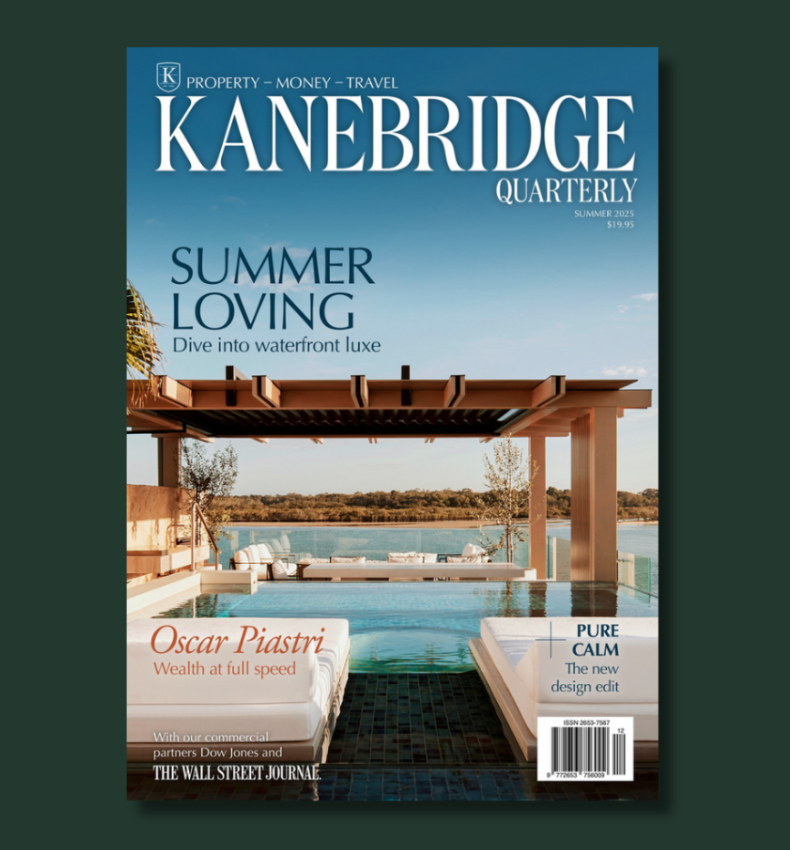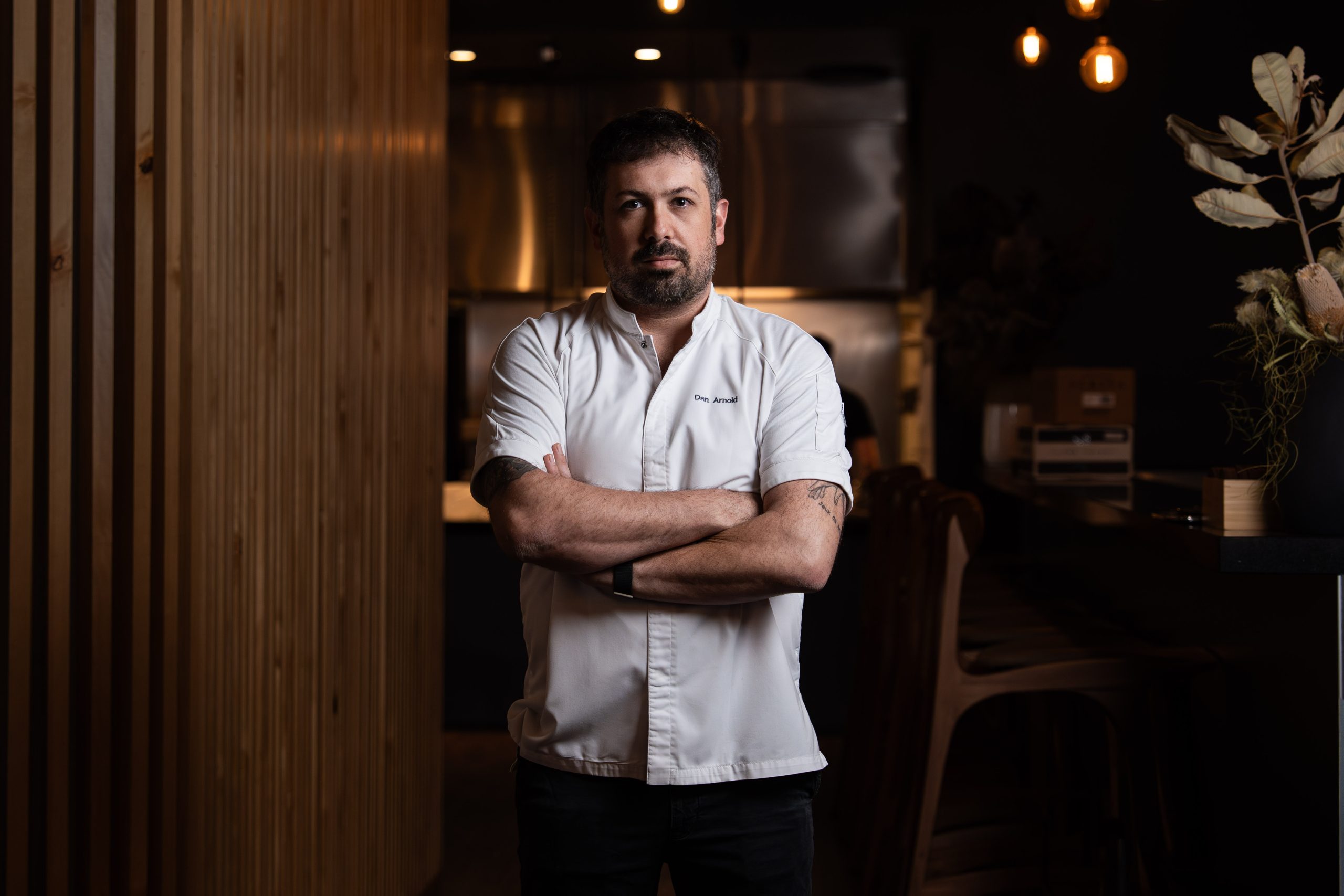A ‘cheeky’ seat takes out the top prize at Australia’s Next Top Designers Awards
A cash prize from Kanebridge Quarterly magazine, offered for the first time this year, drew a record number of entries for the design competition
A versatile stool with a sense of fun took out the top prize at the Australia’s Next Top Designers awards at Design Show Australia last week.
The ‘Cheeky’ stool designed by Maryam Moghadam was the unanimous winner among the judging panel, which included Kanebridge Quarterly magazine Editor in Chief, Robyn Willis, Workshopped Creative Director Olaf Sialkowski, Design Show event organiser, Andrew Vaughan and Creative Director at Flexmirror Australia, Matt Angus.
Designed as an occasional stool or side table, the Cheeky stool comes in a range of skin tones. The judges applauded its commercial applications, its flexibility to work in a range of environments, and its sense of play.
In accepting the $10,000 prize, designer Maryam Moghadam quipped she was pleased to see ‘other people find bums as funny as I do’. A finalist at last year’s awards, Moghadam will put the prize money towards bringing her product to market.

Australia’s Next Top Designers is in its fourth year, but this is the first year a cash prize has been offered. Kanebridge Quarterly magazine has put up the prize money to support the next generation of emerging industrial design talent in Australia.
Editor in Chief Robyn Willis said the cash prize offered the winner the opportunity to put the money towards whatever aspect of their business it would most benefit.
“That might be prototyping their product further, spending on marketing, or simply paying for travel or even childcare expenses to allow the designer to focus on their work and take it to the next stage,” she said. “We’re thrilled to be supporting this design program and nurturing emerging design in a very practical way.”


Two finalists were also awarded ‘highly commended’ by the judges — Mass lamp by Dirk Du Toit and the Coralescence lights from Suzy Syme and Andrew Costa at Tide Pool Designs. The judges agreed both products were beautifully resolved from a design perspective, as well as having strong commercial applications in residential and hospitality design.
The PG rating has become the king of the box office. The entertainment business now relies on kids dragging their parents to theatres.
From farm-to-table Thai to fairy-lit mango trees and Coral Sea vistas, Port Douglas has award-winning dining and plenty of tropical charm on the side.
The PG rating has become the king of the box office. The entertainment business now relies on kids dragging their parents to theatres.
There’s one reliable group of moviegoers left in America—and they can’t go to the movies by themselves.
This week, the kids who make up the industry’s target audience will be heading to theaters for “Zootopia 2” and “Wicked: For Good,” sequels to box-office sensations that could be the highest-grossing movies of the year.
They also have something else in common that has become essential to Hollywood’s biggest hits.
They’re rated PG.
For decades, the movies that printed money were all rated PG-13. It was the rating of the most successful films ever made: superhero franchises, “Avatar” and “Avengers” releases, “Star Wars” episodes, “Titanic,” “Top Gun: Maverick,” the world of “Jurassic Park” and everyone from James Bond to Barbie.
But the entertainment business has never been so dependent on kids dragging their whole families to theatres for the latest PG movie.
Among the bright spots in a bleak year for Hollywood were “A Minecraft Movie” and “Lilo & Stitch,” which are currently sitting atop the domestic box office.
They may soon be jumped by “Zootopia” and “Wicked.” The list of PG hits this year also included the live-action remake of “How to Train Your Dragon,” which improbably beat the latest “Mission: Impossible.”
Meanwhile, last year was the most lucrative year of all time for PG movies, and there are more PG sure-things on the slate for coming years as studios pump out the movies that continue to defy the industry’s gravity.
To put it another way, the people with the most juice in Hollywood right now are 10 years old.
“Kids and preteens,” a recent National Research Group report concluded, “have been the driving force behind many of the biggest theatrical success stories of the past three years.”
The kids and preteens in the youngest generation have grown up with the ability to watch any movie on any device anytime and anywhere they desire.
As it turns out, the place they really want to watch movies is the theater. And theaters are perfectly willing to cater to their most loyal customers.
“If we have an R-rated or horror film on the same day as a PG animated film, I can promise you: We’re always going to try to play that PG animated film,” said Phil Zacheretti, chief executive of Phoenix Theatres Entertainment, which operates multiplexes across the country.
His strategy for those PG films is both simple and profitable.
“We basically try to play every studio’s PG films in as many theaters as we can,” he said.
By now, theatre owners understand those movies are their safest bets. Last year, “Inside Out 2” finished No. 1 at the box office.
The first “Wicked” was very, very popular, too. Anyone with young children was probably in theaters for “Moana 2,” “Sonic the Hedgehog 3” or “Despicable Me 4,” if not all of them.
The result was the first year that PG won the box office after decades of getting trounced by PG-13. And it might just happen again this year.
PG movies have always performed well. But once upon a time, they came with a stigma. “Older audiences thought PG was not going to be cool enough, and families with kids thought PG was going to be too edgy,” said Paul Dergarabedian , Comscore’s head of marketplace trends.
“It was the opposite of the Goldilocks rating.” Only recently has the rating of animated classics, Broadway musicals and video games become just right.
But their rising value isn’t just about PG movies doing better. It’s also about PG-13 and almost every other kind of movie doing worse.
At this point, not even superheroes are guaranteed attractions in Hollywood. Neither is Sydney Sweeney. There are still PG-13 juggernauts, like “Superman,” “Jurassic World: Rebirth” and the upcoming behemoth “Avatar: Fire and Ash.”
But every original PG-13 or R-rated movie like “Sinners” that gets adults to theaters without their children feels like a miracle.
Once they get to the theatre, children want different things than their parents. For them, moviegoing is deeply social, according to NRG’s study, and the single most powerful driver of their behavior is spending time with friends and family.
For as long as theatres have existed, kids have gone there to hang out. Until they couldn’t. In 2020 and 2021, a century of established habits was suddenly disrupted.
When family movies went directly to streaming, the industry feared that PG audiences wouldn’t come back when they could just stay home.
But in a dramatic twist, Gen Alpha now prefers theatres more than Gen Z, millennials or Gen X. If anything, they’re hungry for experiences that are more theatrical. They want immersive screenings—think IMAX , 3-D, Sphere. What they don’t want is to immerse themselves in phone screens.
“They’re not looking to replicate what they can get in their living rooms and bedrooms,” said Fergus Navaratnam-Blair, NRG’s vice president of trends and futures. “They’re looking for something that gives them a reason to disconnect.”
They’re also looking to engage in “participatory fandom.” PG releases meet that demand. Even theater-averse Netflix supplied Gen Alpha with limited theatrical runs of “ KPop Demon Hunters.”
In recent years, audiences sang along to “ Wicked ,” dressed up as Gentleminions and went nuts for Minecraft references their parents just wouldn’t understand.
Those full-blown viral frenzies help movies explode into movements. You might wait to see a movie if you can avoid shelling out for tickets, popcorn and a babysitter.
But your kids won’t. The whole point of seeing a movie is participating in the online memes around that movie, which means they must see it immediately.
This week, despite mixed reviews, “Wicked: For Good” was tracking for the highest ticket presales of any PG movie ever, according to Fandango.
As predictive indicators, those presale numbers are useful. Penn Ketchum, the managing partner of Penn Cinema, wasn’t sure what to expect from the upcoming “David,” an animated biblical children’s movie from a studio that specialises in faith-based content.
But when every showtime at his Pennsylvania and Delaware theatres had strong pre sales, he added screens. Then he added more. When it’s released in December, he predicts “David” will beat the box-office goliath of “Avatar” in some of his markets. “Which will be a massive upset,” he says.
Other PG titles have something else going for them. Navaratnam-Blair calls it “intergenerational nostalgia.”
When “Toy Story 5” comes out next year, for example, millennials who saw the original in theatres as kids 30 years ago will be accompanying their own kids.
Of course, not every PG movie goes to infinity and beyond. This was also a year when Pixar’s “Elio” flopped and Disney’s live-action “Snow White” was left for dead .
But those bombs were the exceptions that proved the industry’s rules of success. After all, today’s audiences don’t have a connection to Snow White. They care more about the star character of another PG movie coming out this year: SpongeBob.
Which means their parents will be taking Hollywood’s most reliable moviegoers back to theatres next month—just as soon as they leave Zootopia and Oz.
On October 2, acclaimed chef Dan Arnold will host an exclusive evening, unveiling a Michelin-inspired menu in a rare masterclass of food, storytelling and flavour.
By improving sluggish performance or replacing a broken screen, you can make your old iPhone feel new agai


















